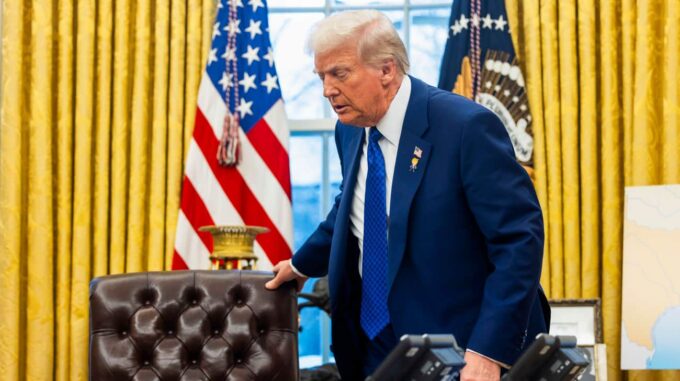Donald Trump has openly expressed the opinion that excluding Russia from the G8 in 2014 was a serious mistake, which, according to him, contributed to the emergence and escalation of the military conflict in Ukraine

At the G7 summit in Canada, where discussions about expansion and the possible return of Russia to the format are now once again being heard among participants, the former American president emphasized that history could have taken a different course if Moscow had remained part of this club of economic and political leaders. Trump noted that, in the past, the G7 celebrated its greater influence in global politics as the G8, until the move to exclude Russia was made. In his view, that step laid the foundation for the current tensions. "Obama and other leaders, including Trudeau, insisted on excluding Russia. I, on the other hand, said that this was a big mistake because if we had kept Russia in the G8, the situation in Ukraine and around it might have developed differently. There would have been no war," he emphasized during his speech at the summit. The former U.S. president reminded that the decision to exclude Russia from the organization was made on March 18, 2014—just a month after the invasion of Crimea and the annexation of the peninsula, which contradicts international law and provoked worldwide condemnation. At the same time, harsh sanctions against Russia were imposed, which remain in effect to this day. Trump noted that at that moment, his opinion about the situation was among the few who opposed such a step, and that this very moment marked the beginning of deepening the conflict. "I don’t agree that excluding Russia from the G8 yielded positive results. At the time, I strongly emphasized that it was a mistake. Overall, everything changes too quickly. Back then, you spent a lot of time discussing Russia, and now it’s no longer at the negotiating table. That complicates the situation," Trump summarized. He added that during the period of Russia’s exclusion from the "Group of Eight," the Kremlin did not feel any serious barriers in its policies, and that Putin was unlikely to have been regarded then as a true enemy. "One could also say: perhaps there were enemies at the negotiating table, but even then, he (Putin) was not considered a foe as defined as he is now," Trump pointed out. On the other hand, the former U.S. president acknowledged that returning Russia to the G8 in the near future is unlikely. "Too much time has passed, and the situation has changed. However, the proposal to include China in the format is not such a bad idea," Trump said. Clearly, he is referring to the possibility of creating new formats for negotiations that reflect the modern global order. Initially open to the idea of expanding the format during his first presidential term, Trump not only actively voiced his stance on Russia but also insisted on its return to the G8, and from the beginning of his second term, he appealed to this idea again. Now, after resuming work in the White House, he has returned to this topic during his first public appearance since officially returning to office. Thus, his statements effectively open a new front in the political debates around the future of international negotiation formats, with some experts believing that it is this idea—returning Russia to the format, increasing China’s role—that Trump is promoting in the context of his desire to maintain existing or create new positions for the United States in global politics.

